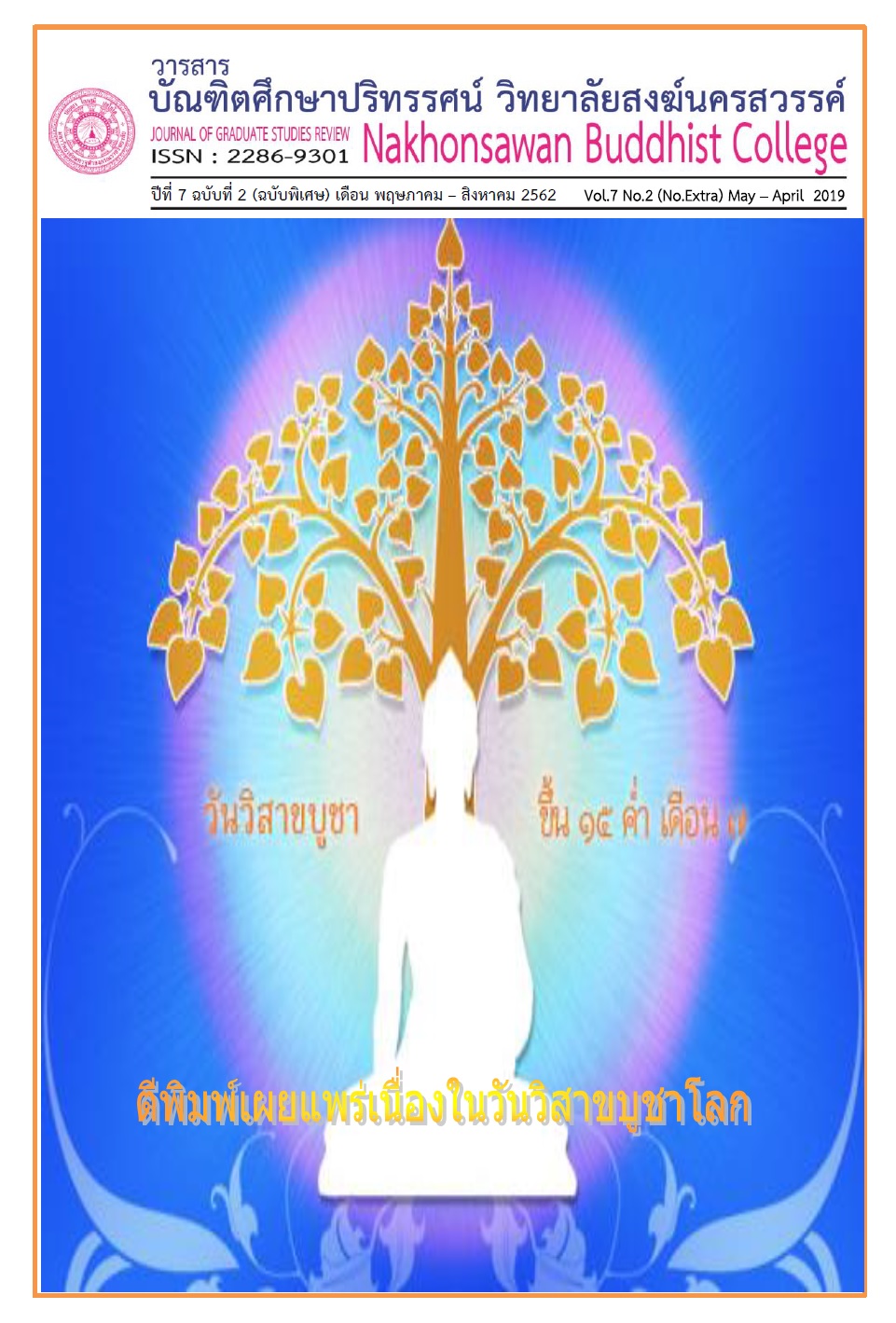รูปแบบการบริหารจัดการเชิงพุทธของสำนักงานส่งเสริมการศึกษานอกระบบ และการศึกษาตามอัธยาศัย ในเขตภาคเหนือตอนล่าง
Main Article Content
บทคัดย่อ
การศึกษาวิจัยครั้งนี้มีวัตถุประสงค์ 3 ประการ เพื่อ 1) ศึกษาสภาพการบริหารจัดการเชิงพุทธของสำนักงานส่งเสริมการศึกษานอกระบบและการศึกษาตามอัธยาศัย ในเขตภาคเหนือตอนล่าง 2) สร้างรูปแบบการบริหารจัดการเชิงพุทธของสำนักงานส่งเสริมการศึกษานอกระบบและการศึกษาตามอัธยาศัย ในเขตภาคเหนือตอนล่าง 3) ประเมินรูปแบบการบริหารจัดการเชิงพุทธของสำนักงานส่งเสริมการศึกษานอกระบบและการศึกษาตามอัธยาศัย ในเขตภาคเหนือตอนล่าง
ในการศึกษาวิจัยครั้งนี้ ใช้ระเบียบวิธีวิจัยเชิงพรรณนา (Descriptive Research) โดยวิธีดำเนินการวิจัย แบ่งเป็น 3 ขั้นตอน 1) ศึกษาสภาพการบริหารจัดการเชิงพุทธของสำนักงานส่งเสริมการศึกษานอกระบบและการศึกษาตามอัธยาศัย ในเขตภาคเหนือตอนล่าง ศึกษาข้อมูลจากเอกสารและจากผู้ทรงคุณวุฒิ จำนวน 18 คน ใช้แบบสัมภาษณ์แบบกึ่งโครงสร้าง ใช้การวิเคราะห์เนื้อหา (Content analysis) 2) สร้างรูปแบบการบริหารจัดการเชิงพุทธของสำนักงานส่งเสริมการศึกษานอกระบบและการศึกษาตามอัธยาศัย ในเขตภาคเหนือตอนล่าง จากผู้ให้ข้อมูล จำนวน 13 รูป/คน เครื่องมือที่ใช้คือ แบบบันทึกการสนทนากลุ่ม ใช้การวิเคราะห์เนื้อหา 3) ประเมินรูปแบบการบริหารจัดการเชิงพุทธของสำนักงานส่งเสริมการศึกษานอกระบบและการศึกษาตามอัธยาศัย ในเขตภาคเหนือตอนล่าง โดยผู้เชี่ยวชาญ จำนวน 30 คน เครื่องมือที่ใช้คือ แบบประเมินรูปแบบ สถิติที่ใช้ ค่าเฉลี่ย ค่าร้อยละ
ผลการวิจัยพบว่า
- สภาพการบริหารจัดการเชิงพุทธของสำนักงานส่งเสริมการศึกษานอกระบบและการศึกษาตามอัธยาศัย ในเขตภาคเหนือตอนล่าง มีการบริหารจัดการ 4 ด้าน คือ 1) ด้านวิชาการ 2) ด้านงบประมาณ 3) ด้านบุคคล 4) ด้านบริหารทั่วไป
- รูปแบบการบริหารจัดการเชิงพุทธของสำนักงานส่งเสริมการศึกษานอกระบบและการศึกษาตามอัธยาศัย ในเขตภาคเหนือตอนล่าง ที่ได้นำการบริหารจัดการเชิงพุทธตามหลักไตรสิกขา ได้แก่ 1) สีลสิกขา กฎระเบียบข้อบังคับ 2) สมาธิสิกขา การปฏิบัติตามหน้าที่ 3) ปัญญาสิกขา ผลการปฏิบัติงาน บูรณาการกับบริหารจัดการ 4 ด้าน คือ 1) ด้านวิชาการ 2) ด้านงบประมาณ 3) ด้านบุคคล 4) ด้านบริหารงานทั่วไป เพื่อให้ได้ รูปแบบการบริหารจัดการเชิงพุทธของสำนักงานส่งเสริมการศึกษานอกระบบและการศึกษาตามอัธยาศัย ในเขตภาคเหนือตอนล่าง
- การประเมินรูปแบบการบริหารจัดการเชิงพุทธของสำนักงานส่งเสริมการศึกษานอกระบบและการศึกษาตามอัธยาศัย ในเขตภาคเหนือตอนล่าง มีองค์ประกอบที่สำคัญอยู่ 4 ด้าน คือความถูกต้องของรูปแบบ ความเหมาะสมของรูปแบบ ความเป็นไปได้ของรูปแบบ และประโยชน์ของรูปแบบ ผลการประเมินอยู่ในระดับมากทุกด้าน


